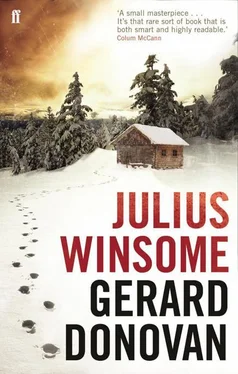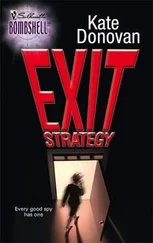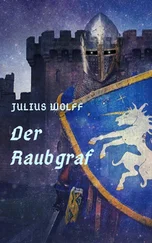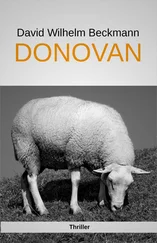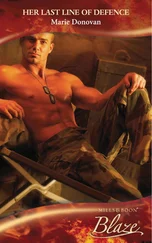She did not know where to turn, so I offered to drive it out of the lane for her. I was bent around the wheel as it was one of those small cars, and my head bounced off the roof. She laughed. I must say it was funny all right, you get in and turn the key and then your head hits the roof as if you were the one started and not the car.
To the Saint John’s Road, she said, and pointed me back, saying left and right, the particular way she came, though I knew a shorter way myself. Her map was not local. I estimated by the route she took that she had come twenty miles from Fort Kent, though we were twelve miles as the crow flies from that town. They flew above us black and cawing over the trees.
I switched on the headlights as we approached the edge of the deep woods, stopped and said goodbye and stood in the last sunlight along the wall of green, the brush of the leaves scattering in the high wind like surf.
She said, I can’t let you walk those miles. It’ll be pitch black.
I’ve done it many a time, I said, to make her feel at ease. On those nights, with a bottle of something to warm me and a few good cigarettes, I had indeed ventured out in the cool black summer woods.
In any case, I have to drive to the town for some things, I said.
I’ll take you.
I hesitated at the offer, going into town with a stranger whose sister said she remembered me. That wasn’t a lot to be going with and a long time to be in company.
My name, she said. It’s Claire.
The good thing about hearing a name is that it brings the familiar with it, a sound that means someone when you hear it, even if for the first time. And the good thing about wearing a coat for most of the day is that you have what you want in it. We switched places and she covered the gravel road out of the hills, arrived at the crossroads in Saint John, and took a right past the long fields, a few houses and a church.
She said, I knew you lived out here somewhere behind the hills.
So we were coming to it now, why she came, as we sped along the winding road to Fort Kent. Across the river a red tractor in New Brunswick spewed up dust in a potato field. The people of lower New Brunswick were French too, and across the river from Saint Francis was Saint Francois and its own white church spire sticking into the sky. To my right the wide brush of forest led back into the settlements where hunters rented log huts and some families lived. I never met them, but they knew I was where I was and the other way round. That was distance enough for everyone to keep.
Near Fort Kent she slowed past a parked police car and mentioned how isolated we all were up here, even in the town, how important her family was to her and the comfort it brought. I nodded and changed my position on the seat. At the supermarket I was ready to go in when she blurted out that she had been seeing someone recently, but not now, because she needed time to think.
I said nothing as I had not been asked anything, but I should have noted the way she tried to fit a long history into a short trip, how she shared details such as that so easily with a stranger. She brought me back with the groceries as the sun touched the ground and the woods closed in like a zip around us to where the lane narrowed.
You should come again if you’d like, I said, and I glanced a little toward her. It was the way I was then, saying the things a somewhat lonely man will say.
Maybe, she said. Maybe I will.
I walked off into the woods with the brown bag and felt my way by the odd star and a certain amount of memory, stars and memory then, until an hour or so later from the woods I saw the black shape of the barn blot out some of those stars and knew I was home.
* * *
I remember thinking as I walked back home that a loss brought her to me, this sudden woman out of the trees, someone she said goodbye to. It made sense, how a lack of something can shake you free of the present and wonder what else there is to be found in life. I admired how she was able to do it, but then the present has the persistence of weeds: it returns every day with the same smell and the same shape and yet you keep expecting something new. Was she expecting that new with me, I wondered.
Now of course I could see the evidence of the seed she had planted: after a brief reference to my school days, she mentioned a man she left behind, knowing that the mind forgets nothing, especially what is left unsaid, and that she could return to the subject of the school later when it would echo against the first reference and seem to make better sense.
I was closing in on her deceit. I placed the rifle inside my coat to keep it warm.
ANOTHER TIME SHE SAID THAT SHE KEPT THINKING OF me eating alone, the silence in the house, how the dark nights must affect me. Yes, they did line up in winter, but this was summer and I thought that come the darker months things might be different for me. Then she mentioned I should get myself a dog. I sat in the chair and looked out the window for a minute.
I said, It’s been twenty years and probably time for someone else to be living in the house.
You make me laugh when you talk like that, she said.
It was not something I would have done without her: we drove within the hour to the Fort Kent animal shelter in the truck, and I wondered if she minded anyone seeing her with me. She didn’t care. The shelter was on the outskirts of town and it was early in the morning. We walked the line of cages. The expressions on the dogs’ faces made each one hard to pass. We came to a cage where a small brown terrier was wrapped in sleep but whose eyes flickered open when my shadow crossed them. It straightened up.
That’s a dangerous breed, she said.
No, I said, mostly terrier, look at the body. And young.
He had so much spirit and so little time. I agreed to the terms of care and took a leash out of my pocket, from a dog my father once had, I said, and though he cowered at first we walked out with the small fellow pulling me along after I had pulled him, as if to say, I’ve been waiting, let’s go.
I’m sorry I suggested anything, she said. Now when I come I will be facing a pit bull.
We drove back with him between us on the bench seat. Dogs know their fates intimately, and sitting between us in the bench seat of the truck—with me smoking a cigarette out the open window given the occasion—and with the winding roads, this one knew his life had just changed and he was grabbing every moment of it with every glance. When I picked up my mail earlier at the post office I threw it on the seat. Now a bunch of it slid around like so much water and he hopped around the pile between us. I told him I would avoid the letters too. We called him Hobbes.
How quickly successful her plan was.
Dogs have one bond in them, and Hobbes let me know that he had chosen me in ways easily missed: how he came up a few minutes after eating and nuzzled his nose on my leg, as if to say he’d eaten the food. I was of no use to anyone as a father, perhaps that is why I saw the little fellow as the next blessing in line, his need to be cared for, with nothing to give in return but his company.
As for references to my days at school, there was nothing I ever did there apart from turning up and going home, though there was one thing: one day in my final year I did notice a group of boys huddled under a tree during the lunch break. They had a stick and were rattling it in around the leaves. I walked closer and saw a cat trapped on the branch. Now they pelted it with stones: one hit it in the head and drew a line of blood down the ear and mouth. The cat tried to play with the stick in case that would make them like it better, that’s what I thought it was trying to do, whatever way the fright was working on its mind. Then it squeezed itself into a ball out of terror and fell, and they were on it, stepping and kicking. I ran the field and then their heads with punches until they spread out. The matter was over as soon as it began, which was just as well as they could have made short work of me had they fought in a unit. One of them had blood on his mouth, another limped holding his knee and saying that I would be sorry, that he had a real father and mother.
Читать дальше
